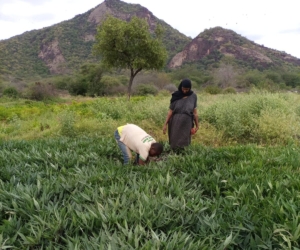Lessons Learnt from the setup of the National Information Platforms for Nutrition Initiative
2019
EC, Multi-country
A Mokoro team of two led by Alta Fölscher conducted this research as a follow-on from a mid-term review of the European Commission’s (EC) National Information Platforms for Nutrition Initiative (NIPN). This research was commissioned as a follow-up piece of work to the mid-term review (MTR) conducted by Mokoro in 2018, with a more specific focus on lessons learnt at the country level during the design and early implementation phases of the NIPN initiative. The aim of the work was to provide information and guidance to countries who are interested in setting up a NIPN in future.
The NIPN initiative was launched by the EC in 2015 and is also supported by the United Kingdom Department for International Development and the Bill & Melinda Gates Foundation. Its goal is to support countries that are part of the global Scaling Up Nutrition Movement and are committed to deliver evidence-based programmes and interventions to improve human nutrition in their progress towards the 2030 Agenda’s Sustainable Development Goal 2 to “end hunger, achieve food security and improved nutrition and promote sustainable agriculture”. The main objective of the NIPN initiative is to create country-led and country-owned NIPNs to strengthen countries’ analysis of nutrition information to better inform policies and programmes for improving nutrition.
The MTR had identified the challenges faced by NIPN countries in the early phases. The lessons learnt work then focussed more on how countries can avoid, mitigate or address the challenges in setting up a NIPN, drawing on how the existing ten countries were able to do so. The lessons learnt work was therefore focused at the country level and aimed at a broader audience than the NIPN actors at the time.
In the early phase of the research, the team constructed a research framework which assessed what findings from the MTR were relevant and set out key themes for further interview questions. Research against the framework drew on the data already collected and analysis already done for the MTR. New primary research was concentrated on the NIPN countries other than the two case studies on Bangladesh and Guatemala done for the review – particularly countries that have overcome the institutional and practical challenges of setting up a NIPN. This meant a thorough documentation review was conducted and NIPN stakeholders at global and country level, including from each of the eight countries targeted (Burkina Faso, Core d’Ivoire, Ethiopia. Kenya, Laos, Niger, Uganda, Zambia) were interviewed, including face-to-face interviews during the NIPN Capacity Building Workshop held in Cote d’Ivoire.



